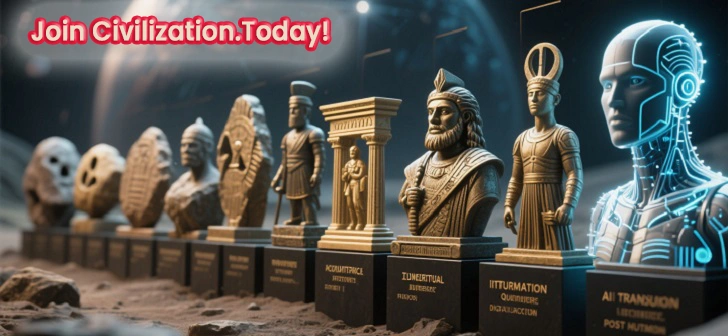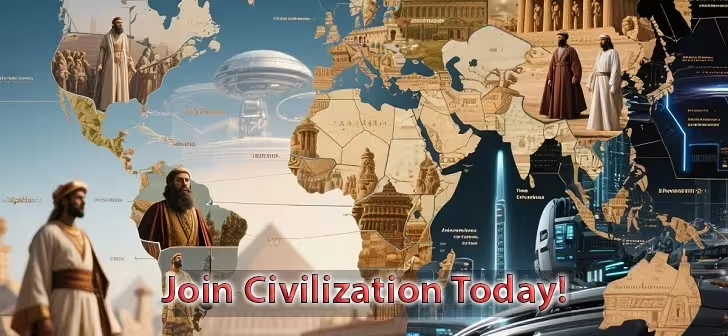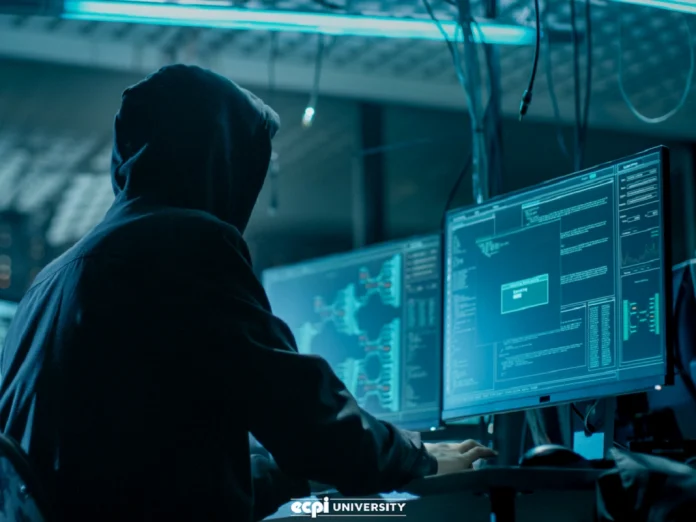In the 21st century, we are no longer just building cities of concrete and steel — we are constructing an interconnected digital civilization. Our governments, economies, healthcare systems, education, and even personal relationships now live and breathe online. But as we enjoy the speed and convenience of this digital age, there’s one invisible pillar that ensures its stability: Cybersecurity Civilization. Without it, everything we’ve built in cyberspace could collapse overnight.
From Ancient Walls to Digital Firewalls
In the past, civilizations were protected by stone walls, moats, and armies. Today, our defense lines are firewalls, encryption, multi-factor authentication, and AI-driven threat detection systems. These are the modern-day fortifications guarding against cybercriminals, state-sponsored hackers, and rogue AI threats.
A single breach can destabilize not just one company but an entire country’s infrastructure. Imagine electricity grids shutting down, hospitals losing patient data, financial markets freezing — all because of a failure in Cybersecurity Civilization. The digital walls we build today are as crucial as the Great Wall of China was for ancient empires.
The Fragile Nature of Digital Trust
Our digital civilization runs on one critical currency: trust. We trust that our banking app will protect our money, that our emails won’t be read by strangers, and that government databases won’t leak our personal records.
However, cyberattacks erode this trust. Once trust is broken, chaos follows. For instance:
- 2017 WannaCry ransomware attack. Crippled hospitals and transportation systems worldwide.
- SolarWinds breach in 2020. Infiltrated U.S. government agencies and top corporations.
- Data leaks from social media giants. Exposed millions of personal identities, fueling scams.
These incidents are not just technical failures — they are cracks in the foundation of our Cybersecurity Civilization.
Why Cybersecurity is the Bedrock of Digital Stability
Without strong cybersecurity, digital progress is meaningless. Here’s why:
- Economic Resilience
Cyberattacks cost the global economy over $8 trillion in 2023. Without robust protection, businesses will lose investor confidence, consumers will hesitate to transact online, and economies will stagnate. - National Security
Modern warfare is no longer fought only on battlefields — it’s fought in cyberspace. Attacks on defense networks, satellite systems, and communication lines can cripple a nation without firing a single bullet. - Technological Innovation
AI, blockchain, and IoT rely on massive amounts of sensitive data. Without cybersecurity, innovation slows down as companies fear exposing their technologies to theft. - Social Stability
Fake news campaigns, social media manipulation, and data breaches can destabilize societies, fueling unrest and division.
In short, Cybersecurity Civilization is not a luxury — it’s the backbone of everything digital.
The Evolving Threat Landscape
Cyberthreats evolve as fast as the technologies we create. Today’s hackers aren’t just lone wolves in dark basements; they’re sophisticated networks, often backed by powerful organizations or even nation-states.
Key emerging threats include:
- AI-powered cyberattacks. Machine learning algorithms that can bypass traditional defenses.
- Quantum computing decryption. A future where current encryption could become obsolete.
- Deepfake manipulation. Fake audio and video used for political or financial sabotage.
- Ransomware-as-a-Service (RaaS). Ready-made hacking tools available for purchase by anyone.
The battlefield of Cybersecurity Civilization is expanding, and so must our defenses.
Building a Resilient Cybersecurity Civilization
To ensure stability in our digital era, we need a multilayered approach:
1. Cyber Education for All
Digital literacy should be as basic as reading and writing. Citizens must understand phishing scams, password hygiene, and privacy rights. Schools and workplaces should integrate cyber hygiene training into their curriculums.
2. AI-Driven Defense Systems
Artificial intelligence can detect suspicious behavior faster than human teams. Predictive analytics can spot threats before they become attacks, giving organizations a crucial advantage.
3. Global Cybersecurity Cooperation
Just as nations cooperate to fight pandemics, they must share intelligence, resources, and strategies to combat cybercrime. Cybersecurity Civilization is a shared responsibility — an attack on one nation can ripple across the globe.
4. Zero-Trust Architecture
The old “castle-and-moat” approach is outdated. Zero-trust means no user or device is trusted by default — every access request is verified, every time.
5. Quantum-Ready Encryption
With quantum computing on the horizon, we must prepare encryption methods that can withstand its immense power.
The Role of Businesses in Protecting Digital Civilization
Businesses are not just economic players; they are frontline defenders of Cybersecurity Civilization.
- Regular Security Audits. Proactive checks to find and fix vulnerabilities before hackers do.
- Employee Awareness Programs. Since human error is often the weakest link, staff training is critical.
- Incident Response Plans. Having a clear protocol minimizes damage and recovery time after a breach.
The Citizen’s Role in Cybersecurity Civilization
You don’t need to be a cybersecurity expert to help protect our digital civilization.
- Use Strong, Unique Passwords for every account.
- Enable Multi-Factor Authentication (MFA) wherever possible.
- Stay Updated with software patches to close security gaps.
- Think Before You Click: Avoid suspicious links and attachments.
Remember, every individual’s action contributes to the collective safety of our online world.
The Future: Cybersecurity as a Global Culture
In the near future, we might see cybersecurity treated like public health — a shared cultural value that everyone participates in. Just like wearing seatbelts or recycling, cyber-safe behavior could become second nature.
We will likely see:
- International Cybersecurity Accords — digital “peace treaties” between nations.
- Cybersecurity Ratings for Companies — similar to credit scores, but for security strength.
- Cyber Insurance Requirements — businesses may be required to have coverage in case of breaches.
The dream is not just to defend against threats, but to build a world where Cybersecurity Civilization is embedded into the DNA of society.
Conclusion: Guarding the Future of Digital Civilization
We are the architects of a new kind of civilization — one built not of stone, but of data. As our cities grow smarter, our homes more connected, and our lives more digital, Cybersecurity Civilization will decide whether our future is stable or fragile.
A secure digital civilization is not a given — it’s something we must actively build, defend, and improve every single day. If we fail, the collapse will be swift and merciless. But if we succeed, we can create a digital era that is not only innovative and connected but also safe and enduring.
The stakes are high, but so is our potential. The question is: will we rise to the challenge?




